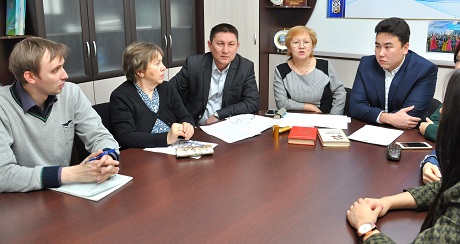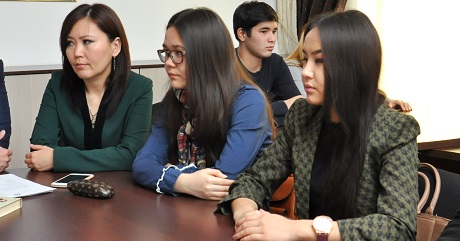A round table in the framework of the celebration of the 100th anniversary of the national liberation rebellion of 1916 was held at S. Toraighyrov PSU,
To discuss the "white spots" and to analyze the most important issues of the December events in 1916 came representatives of the PSU Department of the Assembly of People of Kazakhstan, lecturers of the Department of History of Kazakhstan, as well as students and graduates.
"The rebellion of 1916 - is not a local matter event, as it was considered earlier, it was of national character. During the rebellion, more than 1.5 million people were killed. It is necessary to objectively review the causes and consequences of this rebellion, "- said the Saule Mamytova, a head of the Department the Assembly of People of Kazakhstan, Doctor of History, Professor.
During the round table, Kairat Battalov, Candidate of historical sciences, associate professor in his speech touched previously unknown facts of those years, new details of the progress of the rebellion in Semirechye region, the facts of beating to death women, children and elderly men with sticks of civilians,.
"About 500 people in a sad plight, who were still alive, were buried alive along with the rest. The girls jumped from rocks to save their honor. These events covered almost all regions of Kazakhstan. It was attended, also natives of Pavlodar region. Rebels of the Pavlodar district from 21 September to 3 October fought with punitive detachment in Algabas area ", - said Kairat Kanatovich.
Summing up the discussion, Zuleikha Mardanova, head of the Department of History of Kazakhstan, Candidate of historical sciences, professor stressed that the rebellion in 1916 advanced a new milestone in the history of Kazakhstan - the beginning of the modern period, fundamental transformation.
"The Kazakhs have entered in modern times with the awake national consciousness, with the desire to decide the fate of their country, to be active participants in the political process. All these events coincided with the anti-colonial movements in other parts of the world, "- said Zuleikha Zhenisovna.
At the conclusion of the event, participants agreed that broad-scale events of 1916 played an important role and are needed to be considered as part of the history of the whole colonial Asia.








